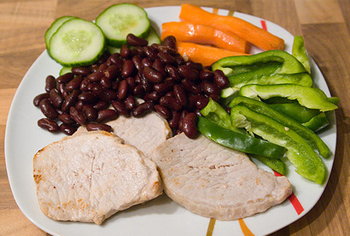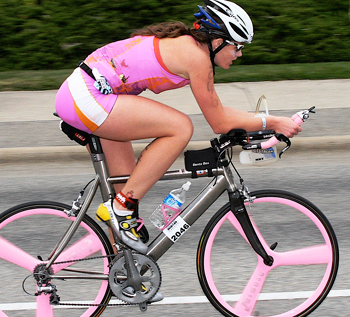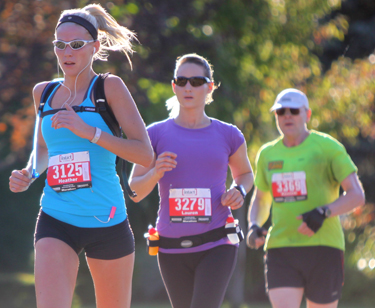Signing up for a marathon, half marathon, 5K race or a triathlon is a great way to motivate you to workout regularly.


You’ll even be surprised how addicting they can be!
Whether you are a seasoned endurance athlete or one who is new to the sport, proper eating can improve your performance. Simple diet changes can help you become stronger and more energized.

So here are the basics on how to fuel for optimum athletic performance:
- Timing. The composition of an athlete’s diet isn’t much different from what most healthy adults should be eating (see the Dietary Guidelines for Americans 2010 recommendations). The timing is where you see major differences. Space your protein intake out throughout the day instead of ‘clumping’ it all together at dinner. Focus on protein and carbohydrate intake within 30 minutes to an hour of working out and focus on carbohydrate intake several hours to an hour pre-workout for optimal performance.
- Nutrient dense foods. An athlete’s diet should be rich in a wide variety of nutrient dense foods. The majority should consist of carbohydrates such as whole grains, legumes, milk, milk alternatives, veggies, and fruit. There should be moderate intake of protein from either animal sources which have all of the amino acids ready to build and repair muscle, or from plant proteins (nuts, seeds, grains, and legumes) which too can provide all of the amino acids you need if a variety is consumed. Moderate fat intake should be from unsaturated fats which can be found in plant sources including nuts, seeds, nut butters, avocados, and olive oil. Healthy fats are important for brain and nerve function as well as for absorption of fat soluble vitamins and skin health.

- Be sure to eat enough! A lack of energy can cause your body to burn not only body fat, but also the metabolic (calorie burning) tissue known as muscle. Muscle loss while training can lead to exhaustion and decrease your level of performance. Not to mention chronic energy deprivation can cause harm to the brain, reproductive system, metabolism, immune system, as well as your bone health.
- One size does not fit all. There is no ‘across the board’ optimal body fat for performance and leaner is not always better. The right percentage of body fat for each person is specific to when that person can perform at their best. Men and women shouldn’t go below 5% and 12% body fat respectively.

- Eat real food. Expensive ergogenic aids and dietary supplements are not necessary and provide no advantages over regular food other than convenience. These products even put you at risk of ingesting unwanted contaminants. What you need to perform at your best can be found in food from your grocery store (especially the perimeter.)
- Keep hydrated! Dehydration can be dangerous, especially for an athlete. It can lead to not only impaired performance but also heat exhaustion. Pale colored urine is a sign of proper hydration. As my cross country coach in high school used to always say, “If it’s clear, you’re in the clear.” If not, remind yourself to start sipping throughout the whole day.
Check out my next blog to get a little more in depth on the healthy eating for the athlete.
Cyclist photo credit: Walker* via photopin cc
Runners photo credit: Sangudo via photopin cc
Healthy dinner plate photo credit: viZZZual.com via photopin cc



